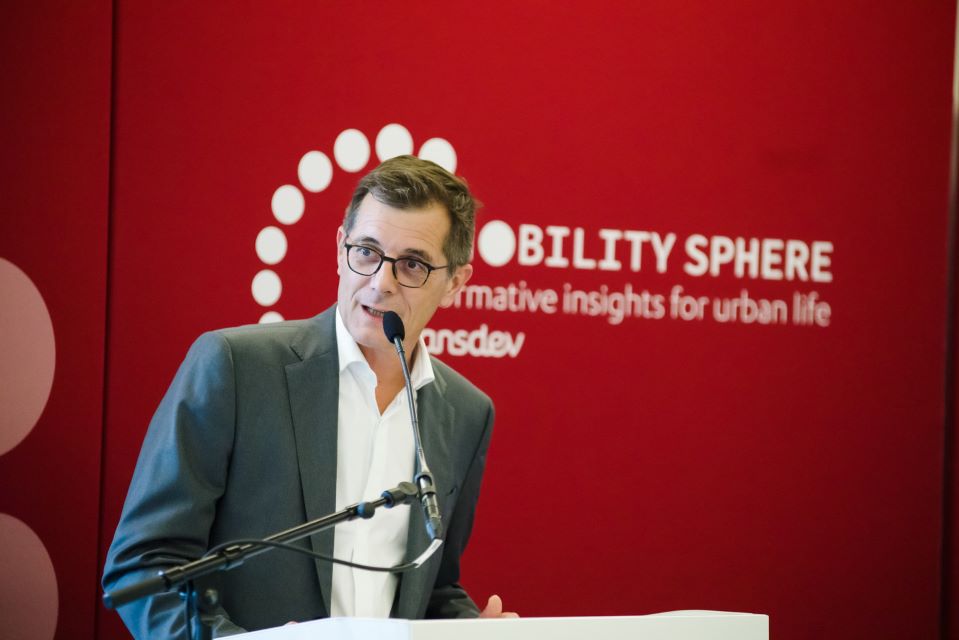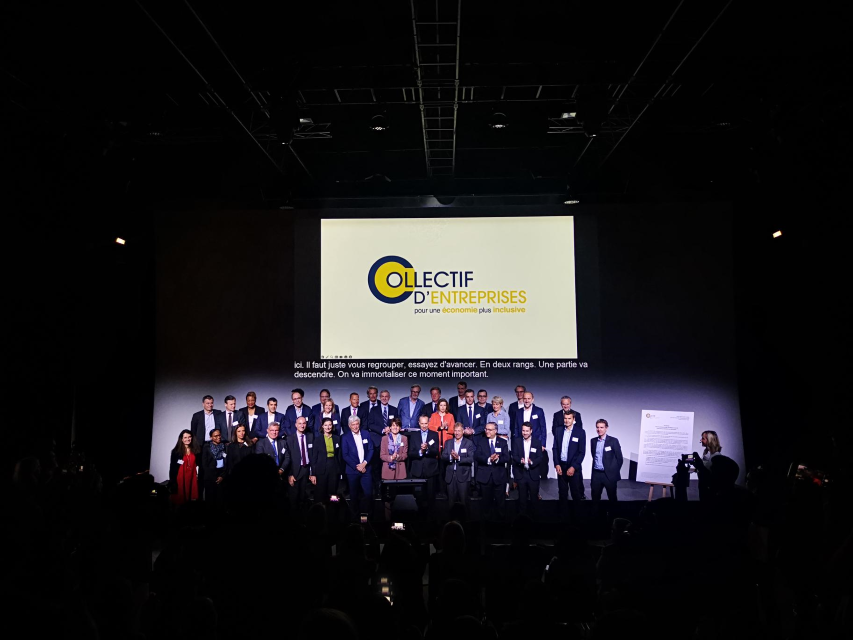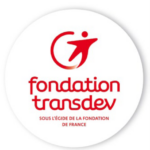social and economic development of communities

Public transit authorities, whether at the municipal, metropolitan or regional level, are working to make transportation networks catalysts for environmental, economic and social development. By mobilising its expertise and providing a daily presence in communities, Transdev is fully involved in achieving this objective.
Playing a social and economic role for a fair transition in communities
As a mobility player, Transdev actively contributes to providing improved access to communities and is committed to a more inclusive mobility. Transdev wants to guarantee access to public transport for all.
In Sweden, at the Linköping site, we launched a research project. The goal is to develop a digital solution for passengers with visual impairments. The project deploys digital audio and tactile tools. They tools communicate instructions to passengers about the shuttle’s arrival and the platform location.
In Harrogate, England, we are offering free travel for people with disabilities to encourage them to use public transport.
In Dunkirk, on the DK’Bus network, transport on demand services are offered. As a result, senior citizens can book via Etoile service and people with reduced mobility via the Handibus service. Furthermore, in 2023, an application made it possible to book a Transport On Demand service two hours prior the journey.
In France, we are partners of the Inclusive Mobility Laboratory (LMI). Following the Mobility Conference and the inclusion of solidarity-based mobility in the LOM Act, with the support of the Transportation Ministry, the LMI worked to set up the “#TousMobiles” program to give local players the keys and tools they need to work toward solidarity-based mobility.
Promoting employment and a collaborative momentum in communities
Transdev collaborates on a day-to-day basis with local players to develop the sustainable mobility projects of today and tomorrow. In France, Lemon, Transdev’s innovation laboratory, is currently active in six communities (Grenoble, Montpellier, Nantes, Lens, Mulhouse and the Rhône). We launched twenty experimental projects on various issues, such as shared mobility, air quality, and mobility and employment. This is thanks to a proven collective momentum and to a citizen consultation system. Through the involvement of the Group and its CEO, Thierry Mallet, in the Business Collective for an Inclusive Economy, Transdev affirms its global commitment to employment and inclusion. In all communities where we do business, our teams develop solidarity-based initiatives with local players.
In 2023, Transdev launched “The Mobility Sphere”, a European think tank exploring the future of mobility. It is led by Thierry Mallet, Transdev Chairman and CEO, and Antoine Grange, Group CEO Europe. François Gemenne, an expert in environmental geopolitics and scientific advisor to the Intergovernmental Panel on Climate Change (IPCC), was appointed Scientific Advisor.
By bringing together experts from the academic, public and private sectors, “The Mobility Sphere” aims to develop innovative solutions. These solutions are tailored to the needs of tomorrow’s cities and encourage the transition to more livable and sustainable cities. We also nourish reflection with an online platform entitled “50 Questions for 2050”. It adresses 50 key issues that will have a significant impact on mobility in European urban areas. The first “Mobility Sphere” Forum was held on October 4, 2023 in Amsterdam, on the theme “Decarbonized mobility, mobility for all: Transforming the way we move?”

Working towards a more inclusive economy
In 2022, Thierry Mallet, CEO of Transdev, has committed himself to the Collectif des Entreprises pour une économie inclusive, by becoming co-sponsor of the working group on inclusive purchasing. This collective unites more than thirty French companies working to implement concrete actions and develop inclusive purchasing policies. In October 2022, the Collective hosted the first forum on inclusive purchasing. The forum brought together 50 “inclusive suppliers” and over 350 participants from member companies. It highlighted best practices to be highlighted and established a benchmark for “inclusive partners”. In this context, Transdev invited two suppliers: a vehicle cleaning service provider from the Hauts-de-France region and an integration and educational support player from Burgundy.
Working for a more inclusive economy
The development of inclusive purchasing is an important aspect of Transdev’s commitments. For this reason, in 2018, the Group joined the Corporate Collective for a More Inclusive Economy, in which Thierry Mallet, CEO of Transdev, co-sponsors the working group on inclusive purchasing. At its annual forum in October, the Collective unveiled a manifesto that aims to accelerate the development of inclusive purchasing. To achieve this goal, each company has undertaken to act so that the Collective as a whole increases by 30% purchases made from the Protected Worker Sector (STPA) and the Integration through Economic Activity Sector (SIAE) by 2025, and makes at least 200 million euros in inclusive purchases per year, the equivalent of over 5,000 full-time jobs. Progress towards these objectives will be evaluated annually.

The Transdev Foundation
Since its creation in 2002, the Transdev Foundation has provided support for 428 projects. In 2023, the Transdev Foundation Executive Committee chose 29 new projects of non-profits. It made grants totaling €309,200 in support of culture, education, employment, health and sport. What these projects have in common is that they all aim to help vulnerable people integrate or reintegrate society and/or the workplace. These projects will reach nearly 8,000 beneficiaries.

Meeting stakeholders' expectations with respect to the circular economy
The circular economy plays an important role in the development of more sustainable communities. Transdev takes this issue into consideration at each stage of its supply chain. Sorting of waste, whether hazardous or non-hazardous, is a requirement in our networks. To meet this obligation, different bins are available. In order to track the waste until the end of its life, we also monitor the treatment of our waste using tracking slips, in accordance with regulations. We have developed framework contracts that enable our entities to take advantage of our national networks of suppliers, thereby ensuring a standardized level of waste treatment, for example for the treatment of our waste oils, aerosols, soiled wipes, etc.
Our analyses confirm the importance local governments ascribe to the circular economy and its ability to build richer, resilient communities. Local mobility services are not an exception to this rule. In Brisbane, we have set up a photovoltaic energy production centre that enables solar-powered vehicles to maximize their range. As a result, our energy is produced and consumed locally, for 100% zero emission travel within the city. This expertise, derived from our Smart Grid management experience, contributes significantly to achieving the holistic objectives set by public transit authorities.
